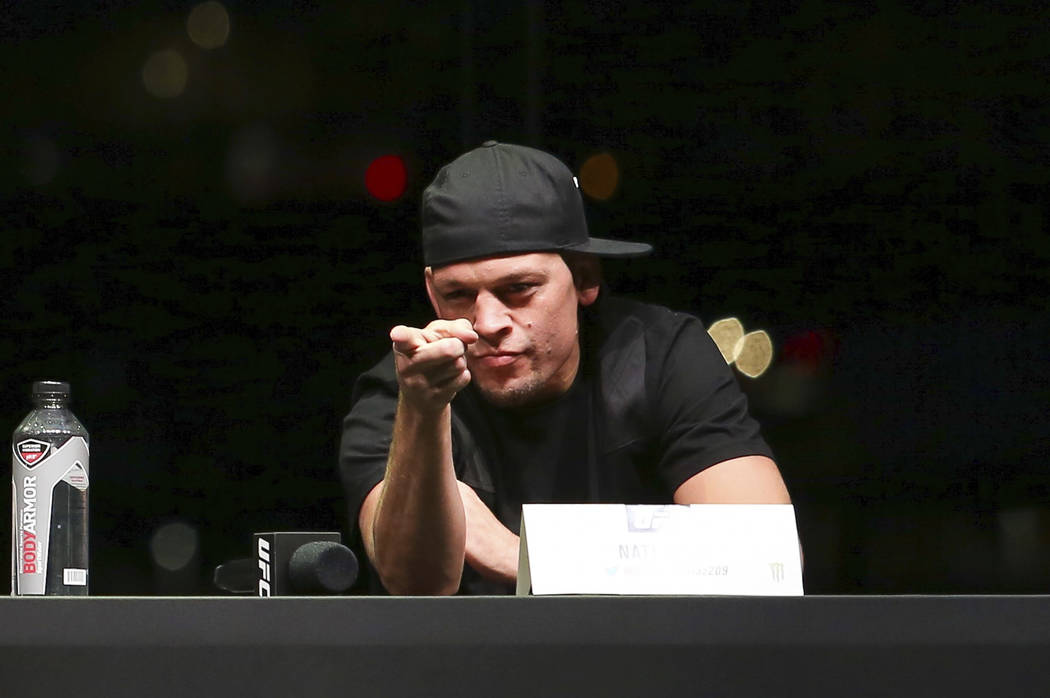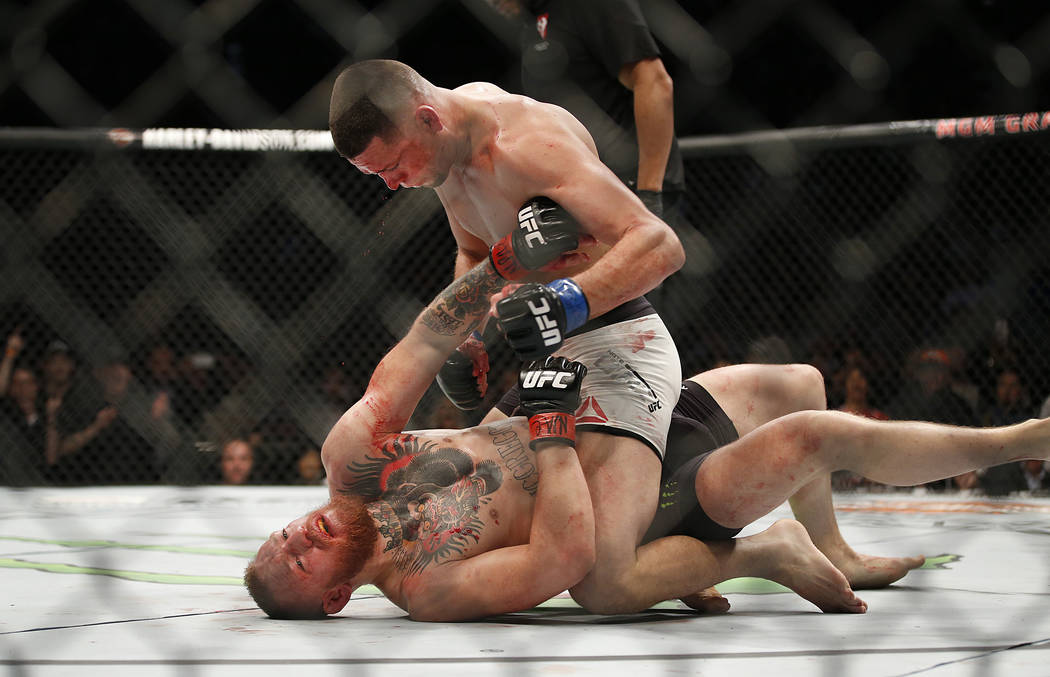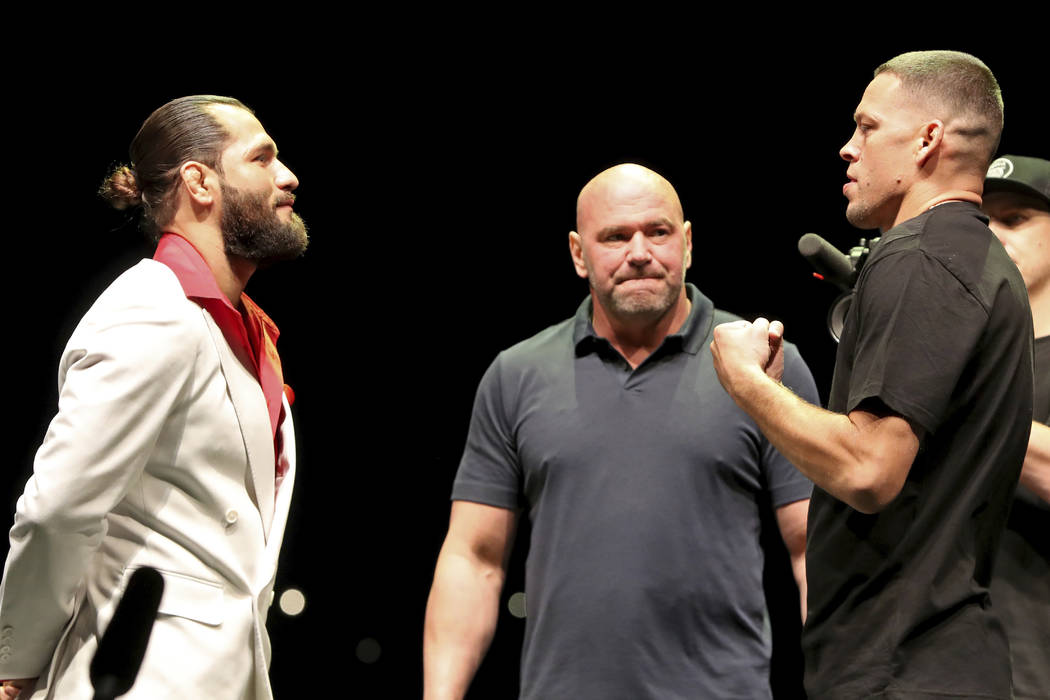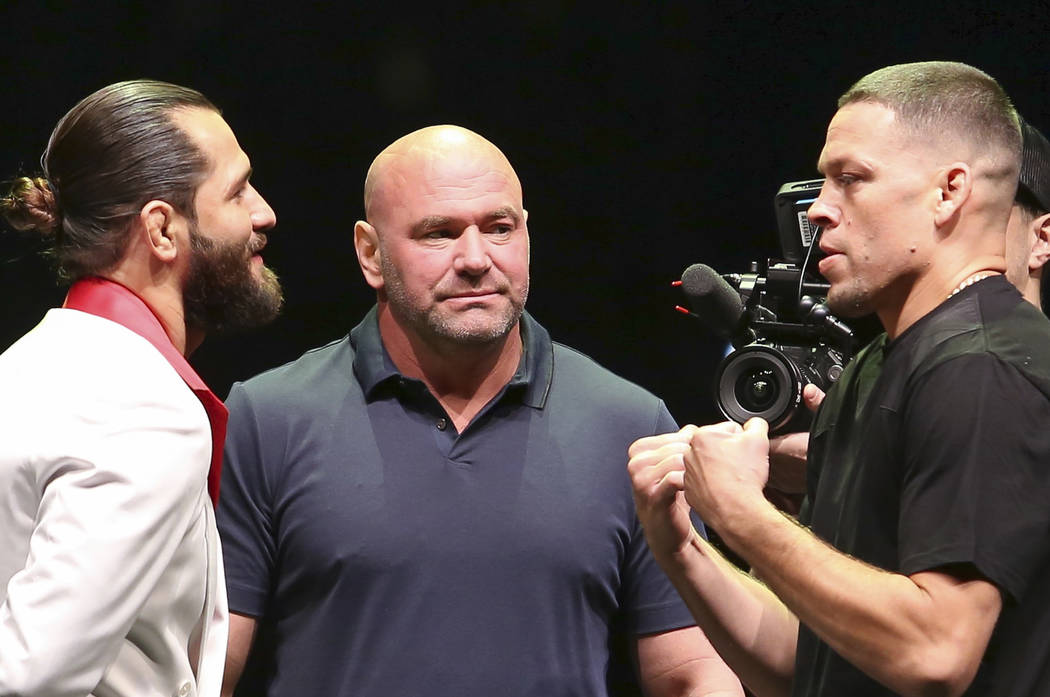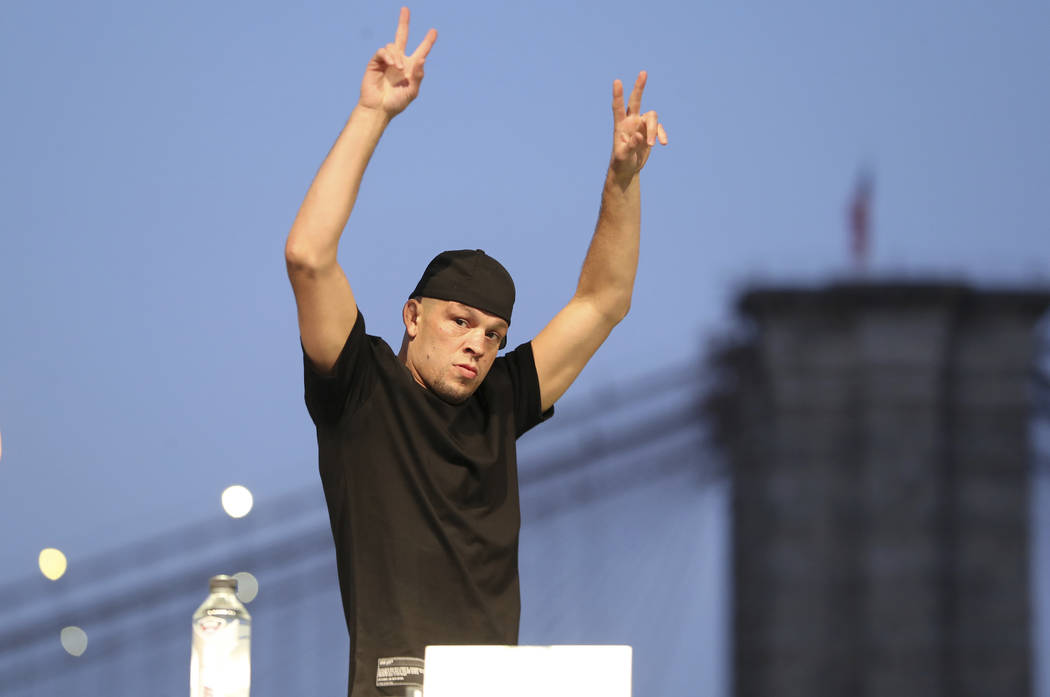UFC executive: Doping problem ‘not a Nate Diaz issue’
Less than 36 hours after one of the biggest stars in the UFC threatened to pull out of a massive pay-per-view event if his name wasn’t cleared following an atypical finding in a drug test, the organization did just that.
A statement released by the UFC late Friday exonerated Nate Diaz of any wrongdoing and cleared the way for him to fight Jorge Masvidal in the main event of UFC 244 at Madison Square Garden in New York on Saturday.
The expediency of the process certainly raised plenty of eyebrows. UFC Senior Vice President of Athlete Health and Performance Jeff Novitzky insists Diaz was vindicated by a new policy that has quietly been in place for several months.
“This isn’t a Nate Diaz issue,” Novitzky told the Review-Journal.
According to Novitzky and UFC Chief Business Officer Hunter Campbell, the organization has been working with the U.S. Anti-Doping Agency since January to overhaul the anti-doping policy first established in 2015.
Campbell said testing science has evolved and the program is changing with it.
“It was very concerning to us that approximately 40 percent of the (adverse findings) have eventually proven to be unintentional use and/or contamination,” he said. “It’s such an insane figure that what we started to have an issue with was these athletes have now been branded as cheaters before the process had time to play itself out.”
Reputation at stake
In Diaz’s case, he could have been cleared behind the scenes. His name surfaced because he chose to go public with the finding before the process was complete.
Novitzky said the overhaul of the policy involves numerous issues from the notification process to the adjudication process to the ability for athletes to get supplements tested themselves.
“We didn’t want to announce it until we had the totality of these revisions completed but felt it was just too important to hold off any longer (on establishing the new minimum threshold limits) so we made the decision to institute those (in late August) while we finished up the revisions to the rest of the policy,” Campbell said.
Campbell and Novitzky pointed out five UFC athletes already have been cleared through the new process, most notably Neil Magny. He was provisionally suspended in May after a sample showed trace amounts of LGD-4033, the same prohibited selective androgen receptor modulator found in Diaz’s sample.
Magny was cleared in September based on the amount present in his sample being under the newly adopted decision concentration level. Novitzky and Magny spoke about the fighter’s case and decision concentration levels at a public forum in California on Oct. 15.
An adverse finding, even below the adopted levels, still triggers an investigation into how a prohibited substance entered an athlete’s system, meaning a fighter could still face sanctions. In Diaz’s case, he was quickly cleared based on the minute levels and the discovery of the prohibited substance in the organic, vegan, plant-based daily multivitamin Diaz uses and provided for testing.
“In my 20 years of anti-doping experience, I’ve never seen such solid evidence relating a low-level positive finding to a contaminated supplement,” Novitzky said of Diaz’s case.
Commissions still rule
Even after the policy goes into place, local athletic commissions will still be able to enforce their own standards. The UFC officials indicated they have worked closely with Bob Bennett in Nevada, Kim Sumbler in New York and Andy Foster in California, among others.
“They have been critical in terms of feedback,” Novitzky said. “The issue is you don’t want to go out with something if you don’t have the confidence the leading commissions in the world are open to exact same structural requirements that you put in place.”
Bennett confirmed he has been in consultation with the UFC and USADA, though he said no changes are necessarily imminent.
“We’ll be guided by scientific evidence, not personal opinion or promotional opinion,” he told the Review-Journal.
Campbell and Novitzky acknowledged fighters have been harshly disciplined in the past for violations they now may have been cleared of through the new guidelines.
“You deal with the best science you have at that point in time,” Novitzky said. “Three years ago, we didn’t know the things we know now. We’re operating with the best science we have and that evolves so rapidly.”
More MMA: Follow at CoveringTheCage.com and @RJ_Sports on Twitter.
Contact Adam Hill at ahill@reviewjournal.com. Follow @AdamHillLVRJ on Twitter.
Upcoming UFC events
■ Nov. 2: UFC 244 (ESPN Plus), New York City
■ Nov. 9: UFC Fight Night 163 (ESPN Plus), Moscow
■ Nov. 16: UFC Fight Night 164 (ESPN Plus), Sao Paulo, Brazil
■ Dec. 7: UFC on ESPN 7 (ESPN), Washington D.C.
■ Dec. 14: UFC 245 (ESPN Plus), T-Mobile Arena



